Thank you all, friends, for your warm reception of my story. It is a great encouragement and motivation for me and I hope I will not disappoint you in the following chapter. I would also like to ask you for your understanding and tolerance with my writing style and grammar, because English is not my first language and occasional verb confusions might demand a lot of empathy on your side to understand what I have meant. 
And also note, please, that the bottom of this post contains a nice map, finally 
Well, here it goes, hope you will enjoy!
Diodotos inherited from his father a large and prosperous realm, in peace with all its neighbours and with secure natural borders. In the north and east there were impassable mountains, in the south and the south-west the vast salt desert. The only open border was that with Margiana, which was guarded by watchtowers and forts and secured by the Royal Army encamped near Bactra. With comparatively little money to be spent on the army, the income of the Royal Treasury was large enough to support extensive construction and mining projects without the need to tax people very high. Diodotos who presided over the establishment and aggrandizement of the kingdom as the leading general of his father’s army now enjoyed the fruits of his previous labours and presided over the realm from his Royal Palace in Baktra without submitting to idleness. On contrary, he was very eager to preside over courts and his verdicts were just, he was keen to discuss new projects with architects and his visions were grand, he often conducted long dialogues with philosophers and his judgement was penetrating. Thus Basileia Baktria seemed to reach that blessed state so desired by all people, where the country blossoms in peace under just rule.
But as it is often the case with great men, Diodotos too, having everything one can reasonably wish for, did not recognize the limit beyond which everything newly gained would have to be paid dearly. And as it is often the case with great men, he too, despite knowing better on his own, fell prey to wrong advice received from those who persuade more by pertinacity than by veracity.
The Fate so wanted that the elder son and heir-apparent of Diodotos, Prince Agathocles, was, unlike his father, more of a general than of a governor. In his youth, he was given lesser commands inspecting border areas, setting up garrisons and dealing with occasional rebellions. Thus he acquired, or thought he acquired, a considerable knowledge in military matters and his restless spirit wanted to distinguish himself in a big campaign of conquest to emulate and possibly overcome his father. While all people were enjoying peace and security, Agathokles alone despised this state, thinking that peace is depraving him of the opportunity to prove himself in war.
As Diodotos succeeded his father, Theodotos Eleutherodotes as Basileus, Agathocles undertook his former position as the commander of the Royal Army. He was now even more bent on using the force commended to him in war and thus he turned his eye on the vast, yet largely unknown lands of India, where populous cities and great treasures were said to lay in the valley of mighty Indus. He therefore entreated his father to authorize him to conquer it and incorporate it into Basileia Baktria. Diodotus doubted the wisdom of such a campaign, arguing, that the Indians pose no threat to his kingdom, but would defend their country vigorously should Baktrians attempt to subjugate them. But Agathocles was confident that this could be done. He came forward to Basileus, his father, and the Royal Council, whereat he spoke as follows:
“Alexander had much smaller empire than we have when he crossed the Straits and yet he did not fear to challenge the King of Kings and marched against him. Now I propose a much smaller undertaking, where our starting position is much more in favour to us, so why should we shy away from it? Once we became lords of India, we secure for us an abundant power-base and countless resources that will enable us to calmly face any future danger from our neighbours who will be unable to take it away from us as we guard the only entrance to that country through mountain passes beyond Kophen. And even if, as some say, we would be unable to subjugate India completely for its vast expanse and warlike population, at least we will reap plentiful spoils during our campaign. Note, regardless what the outcome will be, we have nothing to lose if we ultimately fail, while we have much to gain if we succeed. And succeed we surely will!”
With the benefit of hindsight, I have to say that it was a strange argument to make, yet fully in nature with the reasoning of Agathokles, who was always keenly focused on dealing with the immediate, without considering futre consequences of his actions. For Alexandros in fact did succeed in his vast undertaking, yet his empire fell apart immediately after his death and thus put even his Macedonian homeland in great peril. And the recent history of Baktria herself, considered from the point of view of the Seleukids who claimed inheritance to the former empire of Alexandros, could be used to demonstrate how difficult it is to keep people who desire to be free in subjugation to foreign rule. But at the moment of Agathokles´s speech no one has considered these ominous ramifications or was willing to voice his concerns if someone did.
Thus Agathocles went on to diminish any supposed dangers of the prospective Indian campaign and ridicule those who advised against it, while he was inflating the apparent benefits of attempting it. In the end he succeeded to win the majority of the Royal Council to approve his plan, while Basileus endorsed it because he wanted to avoid contradicting his son and to conceal the split which was slowly beginning to emerge between them.
Gandharan Campaign (244-241 BC)
Royal army, led by Agathocles and his younger brother Heliocles as second in command, left Baktra in late spring of the sixteenth year of Eleutheria (translators note: i.e. 244 BC) and it was a sight to behold. First marched the companions of the generals, heavy cataphracts with riders and chargers both completely clad in iron and bronze, than marched the syntagmae of Pezhetairoi with their proud sarrissas and silver shields, followed by theureoporoi and light troops, whereat the seemingly endless column of soldiers was closed by equally long baggage train. It was the most splendid army that marched through Baktria ever before, all men in the prime of life, their weapons and armour shining in sun. Huge crowds gathered along their way to see the pride of their country with their own eyes and to cheer them as they passed.
In following years, many more armies would march on the same road heading from Baktra to Kophen and beyond, yet alas only a handful of men coming from the opposite direction.
Royal Army spent the winter encamped in the mountains near the pass connecting Paropamisadai with Gandhara, amassing supplies to descent with the coming spring upon the province in front of them. The King of Gandhara, Gandharadzha Gudarz, was taken by surprise by this unexpected and unprovoked attack and ordered all his troops to gather in his capital Taxashila to face the onslaught with his all might and to prevent losing his whole empire by wasting his forces part by part in futile attempts to defend many unimportant places at once. Therefore the Baktrians had been at first met with little resistance and easily penetrated deep into Gandharan hinterland, capturing many cities and villages and put garrisons into them. Just at the end of the campaign season Agathokles with the Royal Army reached Taxashila and laid siege to the city, while Heliokles, who unlike his brother was a keen and able governor, was left behind to set up a civil administration on the newly conquered territories and to gather local levies and mercenaries to reinforce the Royal Army before the final assault on the city.
Upon hearing the news that Heliokles is approaching Taxashila with more than ten thousand mercenaries and local levies, Gandharadzha Gudarz used the following stratagem to induce Agathocles to attack before the reinforcements arrive. He sent one of his trustees to Agathokles, with the instruction to pretend that he speaks for a considerable faction in the besieged city, which ready to betray the Taxashila to Baktrians, but, because of treason of one of its members, the pro-Baktrian faction is now afraid of being discovered by Gudarz, who might find them out at any moment and thus prevent their plans. Agathokles believed the story, being very eager to attack before his brother arrives anyway, because he did not wish to share the glory of expected victory with anybody else. Therefore he ordered the whole army to assault the city on the very next morning without any doubts about the information presented to him.
On the day of battle, Baktrians quickly reached the walls, thinking hopefully that the traitors within the city are letting them in. But once they were beyond the battlements, the Gandharans attacked them from all sides. In the confined space the military prowess of Baktrian soldiers was of little avail and many perished right on the walls. Most of them however reached well into the city, before they realized that they are trapped and subject to attacks form rooftops and countless ambushes form the backstreets. Yet the worst disaster was still to come.
According to a pre-made plan, Gandharans pressed on Baktrians in certain places, while elsewhere they let them a relatively free pass, so that no sooner the Baktrians knew than they were compressed in one densely packed crowd which was subsequently charged by the elephants, Gudarz himself leading the attack from a tower on one of the beast’s back. All attempts to slay the beasts with spears or javelins were in vain and only caused more damage to the Baktrians, because the elephants, enraged by their suffering ran blindly through the densest packs of soldiers apparently as easily as when a horse gallops through a shallow ford, trampling the unfortunate Baktrians to the ground and tossing them to the air. Terrified by the awesome animals and unable to do anything but flee, Baktrians perished by dozens and hundreds in the most horrible death imaginable.
Agathocles was waiting with his heavy cavalry in front of one of the city gates to join the fight once the gatehouse would be secured. For a long time he had had no idea what a disaster had met his men inside the city, until a bunch of fugitives appeared in flight followed by a host of Gandharans in pursuit. Agathocles charged the enemy regardless all odds, but once the elephants appeared, his mount got scared by their unfamiliar smell and menacing appearance and no longer obeying his master galloped away, thus saving his life if not his honour.
More than twenty thousand Baktrians entered Taxashila that morning, full of confidence and pride, less than three thousand of them lived till the evening - no more an army but a flock of terrified birds bursting to all directions as if when an eagle descends upon them.
Agathokles at least tried to rally as much of his men as he could get and join his brother’s army, but he was misled by a local guide and failed to meet him. It was because the guide was actually sent on purpose by Gudarz who wanted to prevent Heliokles from being warned.
The next day Gudarz led his men to meet Heliokles who was now approaching Taxashila, still about ten miles away and still unaware of the failed attack. Gandharans were now full of joy and confidence, inspired by their previous victory and they immediately charged the Baktrians upon sight, heavy cavalry and elephants leading. Heliokles was barely able to form his troops into a proper line when the charge hit them. Bravely organizing the fight as best as he could, encouraging his men and charging amidst the enemies, Heliokles was slain when his horse threw him down upon seeing and elephant running towards them and the beast then crushed him under its foot. Thus perished, at the age of thirty-one, the noblest man of his time, superb administrator loved by the people and brave general admired by his soldiers, who in his youth underwent the long journey to Hellas to take part at the Olympic Games and returned as the victor and who always balanced the impetuousness of his elder brother by his own moderateness, as he was actually commissioned to do by their Father and King when setting out on the campaign.
Agathocles with the remnants of Baktrian forces now retreated back to the mountain pass connecting Paropamisadai with Gandhara. Oh the march they were much annoyed by constant skirmishes with restive Gandharans as well as by the weather, which turned severe with the upcoming winter and the height of the mountains. To their great joy and relief, they met in the pass another Baktrian army, led by Kleander Chomoraios, which was prudently sent earlier by Basileos Diodotos to reinforce the forces sent to Gandhara under Agathokles and was now waiting for the beginning of the campaign season in the very same camp which Agathokles established as his winter-quarters the previous year.
Upon hearing the new of the disaster of previous expedition and the horrible death of Heliokles trodden by elephants, Kleander’s men were much depressed and worried about meeting a similar fate. Their discipline however prevented them from disobeying their commands and so they set on the march as soon as melting snow made the road passable again.
By summer of the eighteenth year of Eleutheria (translators note: i.e. 242 BC) Baktrians quickly regained the western parts of Gandhara by the end of summer they besieged to Taxashila for the second time. They were reluctant to attack the city, though, hoping that prolonged siege and ensuing famine will break its resistance. Thus they spent the winter there, encamped all around the walls, and no sooner they attacked until they got reliable information from within, that the defenders are exhausted already and ready to accept Baktrian overlordship.
The final assault was commanded by Kleander Chomoraios, because Agathokles fell victim to severe fever, not uncommon in those hot and humid lands in the Indus valley. Thus for the second time he was deprived the much desired glory of victor, not sure which of those was more disgraceful for him: whether the first time, when he was worsted by the enemy, or now, when he was overwhelmed by feebleness of his own body. Anyway, in this second attempt the Baktrians finally succeeded, and despite severe losses they were able to capture the city and slain Gudarz, who again fought bravely at the head of his men. Enraged by the losses suffered in the bloody fight and wanting to avenge their predecessors the Baktrians sacked the city completely, while Kleander was neither willing nor able to restrain them.
With the fall of the capital and the death of Gandharadzha the remaining cities Gandhara gave up any further resistance and surrendered on favourable terms to Baktrians. Gandhara was then turned into Baktrian satrapy under Kleander’s rule, who acted as a plenipotentiary responsible directly to Basileus Diodotos.
Agathokles, undeterred by previous reversals and still wanting to prove himself as a conqueror, now set his mind on further conquest. Thinking rightly that he would hardly find many soldiers in Baktria proper to join him on another campaign in India, where one army was annihilated totally while the other lost almost half of its men, and not wanting to incur wrath of his father by asking him for more fresh forces, Agathokles turned the oncoming campaign into a semi-private enterprise, using his share of spoils from conquest of Gandhara to raise as much local troops and mercenaries as he could find as gathered them on southern border with Sattagydia, which lay further south from Gandhara.
At the same time, back in Baktra, Basileus Diodotos hosted a secret conference with emissaries of the Parthian Shah, which resulted into an alliance between the two Kingdoms. The agreement stipulated that Baktrians shall provide money to the Parthians to enable the latter to prosecute their war against the Seleucids more effectively. Diodotos always considered the Seleukids and the other two Macedonian Kingdoms in the East, Margiana and Dayuan, as the greatest enemies of his Kingdom, while he was in turn maintaining fairly good relations with Parthians and the Sakae. Yet he was so far reluctant to openly join them in their war against the Macedonians, until recent surge of raids into Baktrian territory to plunder the borderlands and gathering spoils convinced him to take sides more decisively.








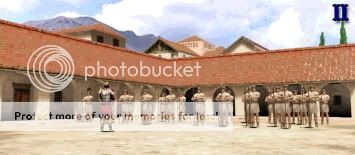
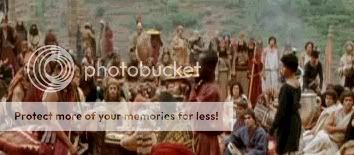




 Reply With Quote
Reply With Quote
 x 15
x 15

 <-- My "From Basileion to Arche - A Makedonian AAR" Memorial Balloon.
<-- My "From Basileion to Arche - A Makedonian AAR" Memorial Balloon. 






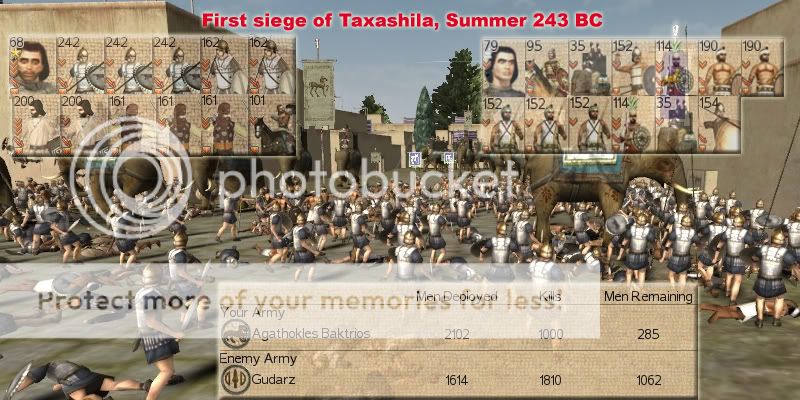

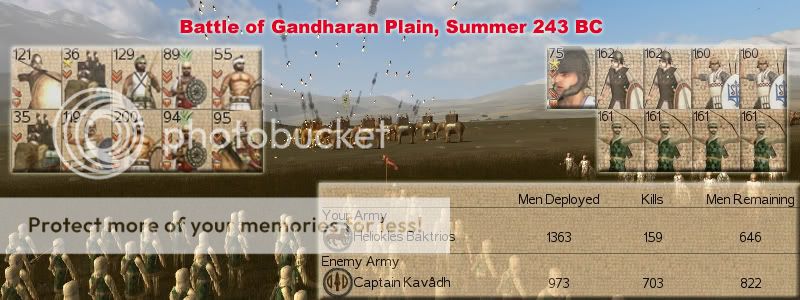
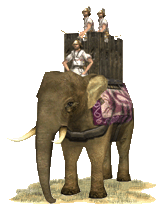
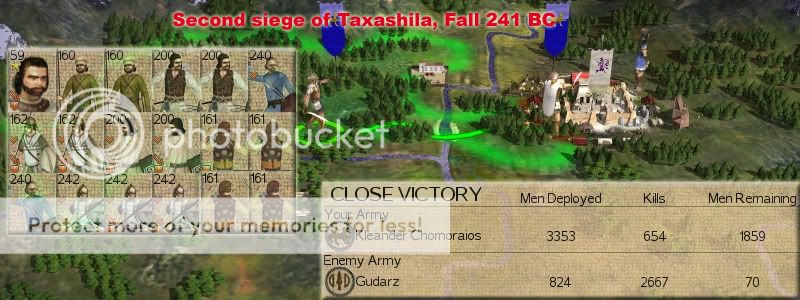







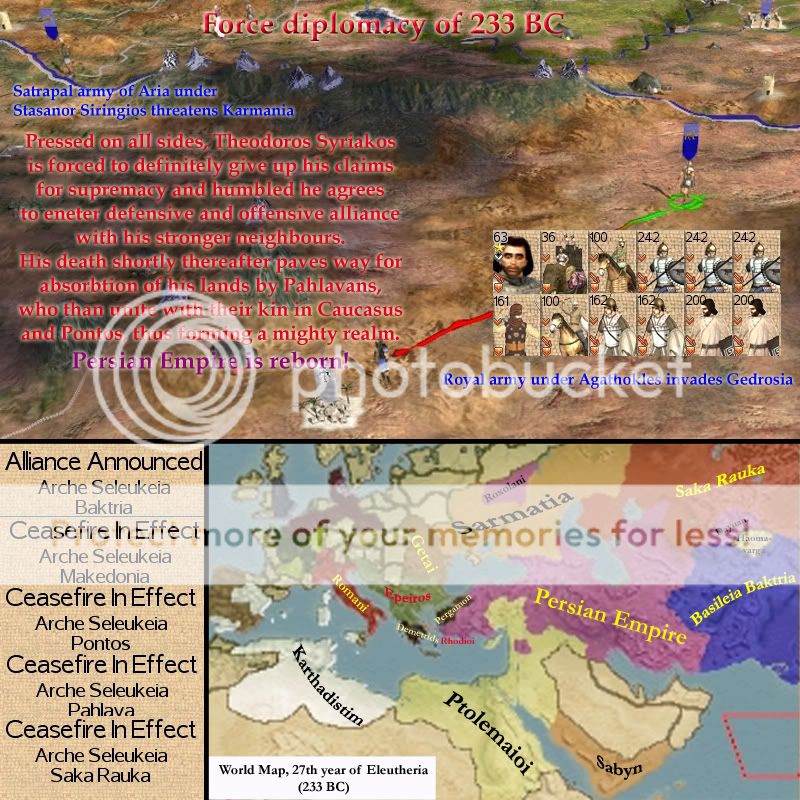
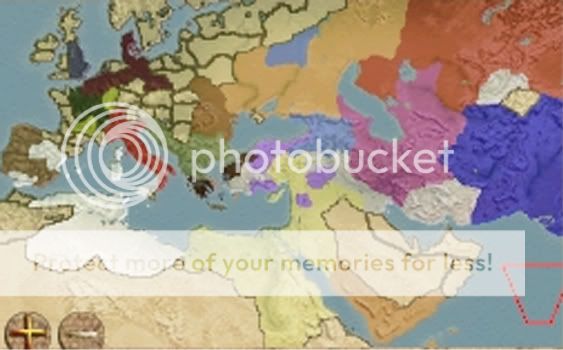
 . An wow to the diplomacy. The AI might be retarded usually but it has it's moments of pure genius.
. An wow to the diplomacy. The AI might be retarded usually but it has it's moments of pure genius. Just a minor thing: You mentioned somewhere that you are thinking of using the AS kater on for your civil war. Let me just remind you that AS and Baktria do not share MICs, so things will get very difficult to simulate. Makedonia shares MICs with Baktria, even though some units are mostly restricted to Baktria and thus they have to be added to Makedonia in order for them to actually use them against you.
Just a minor thing: You mentioned somewhere that you are thinking of using the AS kater on for your civil war. Let me just remind you that AS and Baktria do not share MICs, so things will get very difficult to simulate. Makedonia shares MICs with Baktria, even though some units are mostly restricted to Baktria and thus they have to be added to Makedonia in order for them to actually use them against you.


Bookmarks